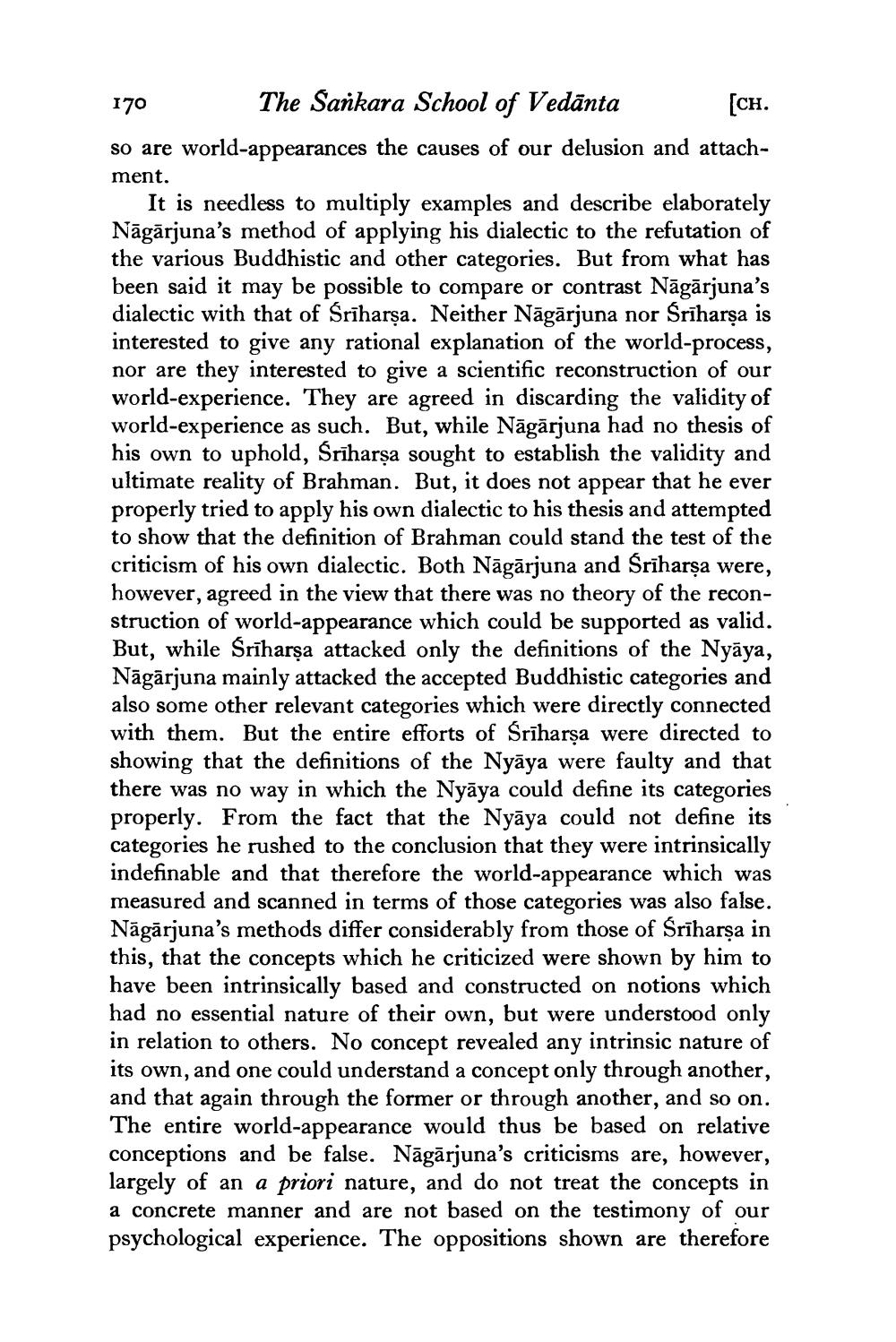________________
170
The Sankara School of Vedānta [CH. so are world-appearances the causes of our delusion and attachment.
It is needless to multiply examples and describe elaborately Nāgārjuna's method of applying his dialectic to the refutation of the various Buddhistic and other categories. But from what has been said it may be possible to compare or contrast Nāgārjuna's dialectic with that of Śrīharșa. Neither Nāgārjuna nor Śrīharşa is interested to give any rational explanation of the world-process, nor are they interested to give a scientific reconstruction of our world-experience. They are agreed in discarding the validity of world-experience as such. But, while Nāgārjuna had no thesis of his own to uphold, Śrīharsa sought to establish the validity and ultimate reality of Brahman. But, it does not appear that he ever properly tried to apply his own dialectic to his thesis and attempted to show that the definition of Brahman could stand the test of the criticism of his own dialectic. Both Nāgārjuna and Śrīharşa were, however, agreed in the view that there was no theory of the reconstruction of world-appearance which could be supported as valid. But, while Srīharşa attacked only the definitions of the Nyāya, Nāgārjuna mainly attacked the accepted Buddhistic categories and also some other relevant categories which were directly connected with them. But the entire efforts of Sriharșa were directed to showing that the definitions of the Nyāya were faulty and that there was no way in which the Nyāya could define its categories properly. From the fact that the Nyāya could not define its categories he rushed to the conclusion that they were intrinsically indefinable and that therefore the world-appearance which was measured and scanned in terms of those categories was also false. Nāgārjuna's methods differ considerably from those of Śrīharşa in this, that the concepts which he criticized were shown by him to have been intrinsically based and constructed on notions which had no essential nature of their own, but were understood only in relation to others. No concept revealed any intrinsic nature of its own, and one could understand a concept only through another, and that again through the former or through another, and so on. The entire world-appearance would thus be based on relative conceptions and be false. Nāgārjuna's criticisms are, however, largely of an a priori nature, and do not treat the concepts in a concrete manner and are not based on the testimony of our psychological experience. The oppositions shown are therefore




